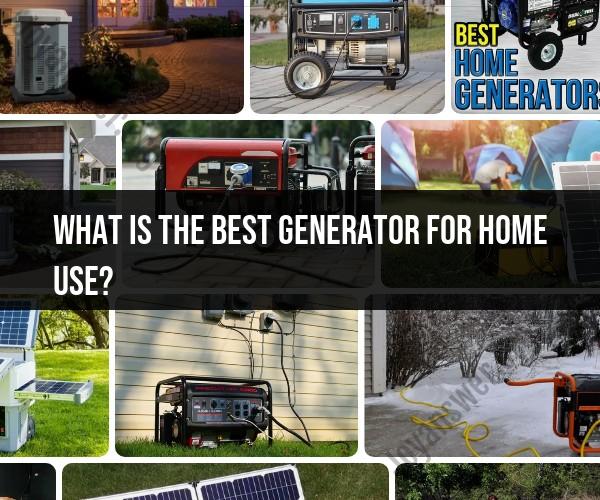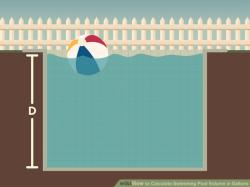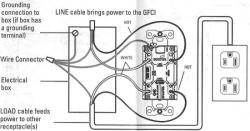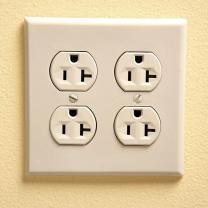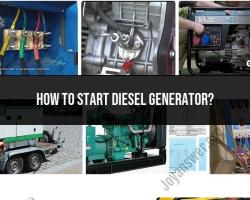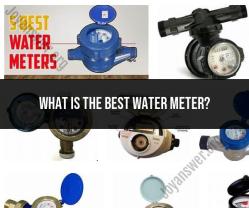What is the best generator for home use?
Selecting the best generator for home use depends on your specific needs, budget, and the power requirements of your household. Here's a comprehensive guide to help you choose the ideal home generator:
Assess Your Power Needs:
- Start by listing the essential appliances and devices you want to power during an outage. This may include refrigerators, lights, heating or cooling systems, and medical equipment.
- Calculate the wattage requirements for each item on your list. You can find this information on the appliances' labels or in their manuals.
Generator Types:
- There are two primary types of home generators:a. Portable Generators: These are versatile and cost-effective for short power outages. They can be moved around but require manual setup.b. Standby Generators: These are permanently installed and automatically kick in when the power goes out. They are more expensive but offer seamless, long-term power solutions.
Fuel Type:
- Generators can run on various fuels, including gasoline, propane, natural gas, and diesel. Choose a generator that uses a fuel source readily available and convenient for you.
Size and Capacity:
- Select a generator with sufficient capacity to meet your power needs. Generators are rated in terms of watts, so make sure the generator's rated capacity matches or exceeds your calculated requirements.
Automatic Transfer Switch (ATS):
- If you opt for a standby generator, ensure it comes with an ATS. This device automatically switches your home from the main power supply to the generator when there's an outage, ensuring uninterrupted power.
Runtime and Fuel Efficiency:
- Consider the generator's runtime on a single tank of fuel. A longer runtime means less frequent refueling.
- Look for generators with features like automatic idle control to conserve fuel when the load is light.
Noise Level:
- If noise is a concern, choose a generator with lower decibel ratings. Inverter generators are known for their quiet operation.
Portability and Storage:
- If you choose a portable generator, consider its weight and size. Ensure it's easy to move and store when not in use.
Safety Features:
- Look for generators with safety features like low-oil shutoff, overload protection, and GFCI outlets.
Brand and Warranty:
- Select a reputable generator brand known for reliability and durability.
- Check the warranty terms and consider purchasing an extended warranty for added peace of mind.
Installation and Maintenance:
- Factor in the cost of installation, including any required electrical work.
- Regular maintenance is crucial for generator longevity, so ensure you can access maintenance services or DIY maintenance.
Budget:
- Set a budget that includes the cost of the generator, installation, and any necessary accessories.
Local Regulations:
- Check local regulations and permits required for generator installation, especially for standby generators.
In conclusion, the best generator for home use depends on your specific needs and preferences. Take your time to assess your requirements, research different models, and consult with a qualified electrician or generator specialist to make an informed decision that ensures your home has reliable backup power during outages.
Finding the Perfect Generator for Home Use: A Buyer's Guide
When choosing a generator for home use, there are a few key factors to consider:
- Wattage: Generators are rated in watts. The wattage of the generator you need will depend on the appliances and devices you plan to power. To determine the wattage you need, add up the wattage of all the appliances and devices you plan to run simultaneously.
- Fuel type: Generators can be powered by gasoline, propane, natural gas, or diesel. Each fuel type has its own advantages and disadvantages. Gasoline generators are the most common and affordable type, but they can be noisy and produce fumes. Propane generators are cleaner and quieter than gasoline generators, but they can be more expensive. Natural gas and diesel generators are the most expensive type of generator, but they are also the most powerful and quietest.
- Portability: Generators come in a variety of sizes and weights. If you plan to move your generator around, choose a portable model. Portable generators are typically smaller and lighter than stationary generators.
- Features: Some generators come with additional features, such as automatic start and stop, remote start, and carbon monoxide monitoring. Consider which features are important to you and choose a generator that has them.
Powering Your Home: Choosing the Best Generator for Your Needs
Once you have considered the key factors above, you can start shopping for a generator. Here are a few tips for choosing the best generator for your needs:
- Read reviews: Read reviews of different generators before you buy one. This will help you to learn about the pros and cons of different models and choose the best generator for your needs.
- Talk to a generator expert: If you are not sure which generator is right for you, talk to a generator expert. They can help you to choose the right generator for your needs and budget.
- Consider your needs: Think about how you will use the generator and what appliances and devices you plan to power. This will help you to choose the right size and type of generator.
Backup Power Solutions: Top Generators for Residential Use
Here are a few of the top generators for residential use:
- Generac Guardian Series Generators: Generac Guardian Series generators are a popular choice for homeowners because they are reliable and durable. They come in a variety of sizes and wattages to meet the needs of any homeowner.
- Honda EU Series Generators: Honda EU Series generators are known for their quiet operation and fuel efficiency. They are a good choice for homeowners who need a generator for short-term power outages.
- Westinghouse WGen Series Generators: Westinghouse WGen Series generators are a good value for the money. They offer a variety of features at an affordable price.
- Briggs & Stratton PowerProtect Series Generators: Briggs & Stratton PowerProtect Series generators are designed to protect your home from power outages. They come with a variety of features, such as automatic start and stop and carbon monoxide monitoring.
When choosing a generator, it is important to consider your needs and budget. With a little research, you can find the perfect generator for your home.
